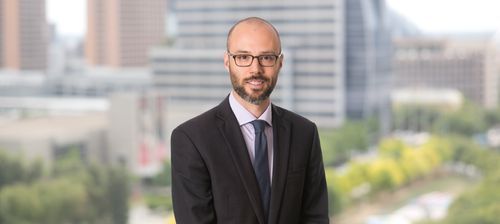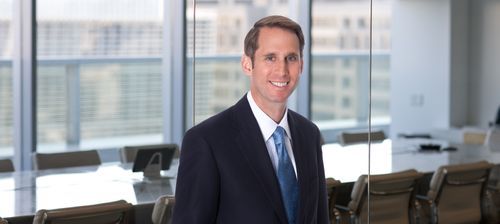Pro Bono In Action
Winston Pro Bono Team Obtains Reversal in Seventh Circuit Court of Appeals
Pro Bono In Action
Winston Pro Bono Team Obtains Reversal in Seventh Circuit Court of Appeals
July 21, 2016
Washington, D.C.-based Associate Eimeric Reig-Plessis led a Winston & Strawn pro bono team to victory in the Seventh Circuit Court of Appeals on behalf of a prisoner alleging deliberate indifference to his medical needs. Prison doctors refused to prescribe effective medication, conduct adequate testing, or order specialist care for his severe spine injury caused by falling down a wet staircase. In a precedential opinion that will allow our client’s claims to be heard on the merits, the panel reversed a district court decision dismissing the case for failure to exhaust administrative remedies.
Under the Prison Litigation Reform Act, prisoners must exhaust available remedies within the penal system before filing suit for violations of federal law. Our client filed two internal grievances against prison doctors. Before filing his first grievance, he sent it to the prison library for photocopying, but did not receive it back until after the filing deadline had passed. As to his second grievance, he was unable to appeal an initial denial of his claim because he never received notice of it. The district court concluded that neither grievance was exhausted.
The dispute over the first grievance turned on whether the prison library’s delay in returning our client’s grievance was “good cause” under Illinois law for filing the grievance after the deadline. The district court held that, because prisoners are not required to photocopy their grievances, the library’s delay did not excuse the late filing. The Seventh Circuit disagreed. Adopting Winston’s arguments, the panel reasoned that “grievances and other paperwork are not infrequently lost,” so it was “reasonable for [our client] to take the precaution of making a copy of his grievance” before filing it. Because “[t]he lateness [of his filing] was caused by circumstances outside [his] control—and within the prison’s”—he had good cause for the delay.
As to the second grievance, the district court found that our client’s testimony that he never received a response “lacked credibility.” But again, adopting our arguments, the Seventh Circuit held that the district court improperly shifted the burden of proof: Exhaustion is an affirmative defense, and the adverse “credibility” finding was not evidence that our client ever received a response.
Chief Judge Diane Wood wrote the opinion, which was joined by Judges William Bauer and David Hamilton.
Partner Chuck Klein helped moot the case.


